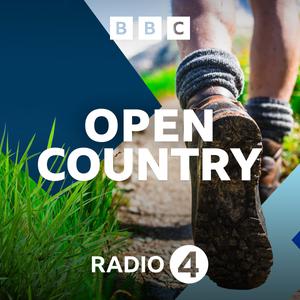
Open Country
BBC
Countryside magazine featuring the people and wildlife that shape the landscape of the British Isles
- 24 minutes 17 secondsDiving Gannets and Raging Seas
Martha Kearney hears stories of recovery from the Firth of Forth. First, she takes to the water with guide Maggie Sheddan and skipper John McCarter to explore the iconic Bass Rock, a volcanic island just beyond the shores of North Berwick in East Lothian. A decade ago, Bass Rock became the world’s largest colony of Northern gannets, home to over 75,000 breeding sites. Then, in 2022, Avian Flu hit the colony at the height of the breeding season. By 2023, the total population was estimated at just under 52,000 breeding sites, a decrease of over 30% from the count in 2014. But now, at the beginning of a new breeding season, hope is in the air as the gannets return to the rock.
Meanwhile, back on dry land, another story of recovery unfolds. Over the winter months, North Berwick was hit by huge storms. Four-metre waves, in combination with spring tides, left behind a huge hole in the harbour wall. Martha speaks to Andrew Duns from the North Berwick Harbour Trust and harbour master Ricky Martin about the repairs that are now underway. The storms also shifted the sand dunes on the beaches around North Berwick. Emma Marriott, Conservation Assistant at the Scottish Seabird Centre, tells Martha about the post-storm beach cleans which unearthed ancient litter from the 1960s.
Presented by Martha Kearney Produced by Becky Ripley
25 April 2024, 2:00 pm - 24 minutes 36 secondsPostal Paths and Corpse Roads
Up until the 1970s, postmen and women in rural areas walked their delivery rounds - taking routes through the hills dubbed "postal paths". Some routes, and fragments of others, still survive today. In this programme Helen Mark explores one of them, near the village of Shap in Cumbria, with author Alan Cleaver who is writing a book about these old paths. So far he's identified over thirty of them up and down the UK. Others have now been built over and are gone forever. Alan tells Helen about the cultural significance of the postal service in the past, recounting the poignant story of a man who used to write letters to himself, just so that the postman would call by and he would have a visitor. Alan and Helen discuss the disappearing role of postmen and women, in the age of electronic communication.
Helen also explores part of Shap's old Corpse Road, which linked Swindale Head with Mardale - a village which didn't have its own cemetery until the mid 18th century. Before that, bodies had to be carried over the fells to Shap for burial - a distance of about eight miles. The last body was carried along the Corpse Road in 1736. Local historian Jean Scott-Smith tells the story of the Corpse Road and shows Helen part of the route.
Produced by Emma Campbell
18 April 2024, 2:30 pm - 24 minutes 29 secondsBritain’s deadliest footpath
The Broomway has been dubbed the “deadliest footpath in Britain”, claiming more than a hundred lives. Helen Mark takes a cautious walk along this treacherous Essex seapath with Peter Carr and John Burroughs from the Foulness Island Heritage Centre. She’ll hear how people can easily become disoriented on the vast mud flats and tragically caught out by the rapidly advancing tides of the Thames Estuary. Helen will also be joined by Thea Behrman, the director of the Estuary Festival, to reflect on how this meeting point of land and sea can provide creative inspiration through its bleak beauty.
Presented by Helen Mark Produced by Robin Markwell
11 April 2024, 2:30 pm - 24 minutes 27 secondsField notes from Mars
Rose Ferraby joins geologist Dr Claire Cousins, visual artist Ilana Halperin and art historian Dr Catriona McAra as they explore the artistic and scientific terrains of both Orkney and the planet Mars. From the windswept Orcadian cliffs to the Martian landscape, they discover the surprising similarities of these two locations and explore how both science and art can interpret time, space and history in new and insightful ways.
Produced by Ruth Sanderson
4 April 2024, 2:30 pm - 24 minutes 39 secondsTales from the Quoile Riverbank
Over the centuries the River Quoile has carried Vikings, steam ships and cargoes of coal and timber from as far afield as the Baltic and Canada. Today it's a river for leisure pursuits – popular with canoeists, anglers and wildlife enthusiasts.
Cadogan Enright is a councillor, environmental campaigner and chairman of the local canoe club. He takes Helen Mark out on the river to sing its praises, but also to point out concerns. He tells her that Downpatrick and the surrounding countryside were prone to tidal flooding in the past, but now the threat comes from the land - with increasing winter storms leaving the land saturated. Helen meets Robert Gardiner, chairman of the railway museum, who shows her how the water flooded their exhibition gallery last year and has threatened the museum's financial future.
Back on the riverbank, Helen meets Stephen O'Hare, a member of the River Quoile Trust which campaigns for improvements to the river. He shows her the remains of quays along the riverbank, which were once busy dockside areas for cross channel steam ships during the industrial revolution. Trade died out because of the unpredictability of the tides and the difficulties of navigating Strangford Lough out to the Irish sea, and came to a halt in 1957 when a flood barrier was built at the mouth of the river.
As for the Vikings – they haven't quite disappeared. Viking historian Philip Campbell and a group of enthusiasts have built a re-enactment village and a replica longship which they sail on stretches of the Quoile. He tells Helen that, as its dragon head noses through the waters which wind around the gentle drumlin countryside, he is filled with appreciation for the beauty of the river and its importance through the centuries.
Produced by Kathleen Carragher
9 February 2024, 2:26 pm - 24 minutes 33 secondsReed cutting at Cley
Bernard Bishop has lived and worked on the Cley marshes for his whole life. It's the Norfolk Wildlife Trust's oldest reserve and home to a plethora of birdlife, sealife and grazing saltmarsh cattle. Bernard and his family have been cutting reeds to be used for thatching from the marsh for five generations and counting. Bernard talks to Ruth Sanderson as he cuts this year's reed crop with his son and nephew. With birds calling overhead, he reflects on a life spent working in and loving this very special landscape.
Produced and presented by Ruth Sanderson
2 February 2024, 6:26 pm - 24 minutes 31 secondsThe changing river with Philippa Forrester
For over two decades presenter and wildlife expert Philippa Forrester has lived in a house with a river flowing through the garden. It's home to an abundance of species including Kingfisher, Mink and Egrets, and it's been the backdrop to a remarkable period of time when Philippa helped raise two orphaned otter cubs ready to be released back into the wild.
In this programme Philippa tells some of the stories of this river, and remembers how whole trees and even a car have come floating past after particularly heavy rains. She talks about how the river changes in the seasons, but also how she's seen legions of Signal Crayfish marching down after the sluice gate has been opened. Philippa drops down to Keynsham to speak to Simon Hunter about what can be done to help tackle this invasive species, and Ben Potterton from The Otter Trust pops over to the house to talk about those enigmatic and elusive carnivores.
Presenter: Philippa Forrester Guest: Ben Potterton, The Otter Trust Guest: Simon Hunter, Bristol Avon Rivers Trust
Producer: Toby Field for BBC Audio Bristol
25 January 2024, 3:30 pm - 24 minutes 1 secondMabel's mountain trip with hares
"In the winter when the snow is there it's a different world, escaping into the silence. It has a hint of the forbidding too because you feel you're going on true adventures." Andrew Cotter.
It's almost two years now since Iain Cameron and Andrew Cotter took producer Miles Warde on a lengthy summer mountain hike. They all agreed they'd love to come back in the winter, in the snow, kitted out and accompanied by at least one of Andrew's famous dogs. Olive stayed at home for this one; but buoyed up by endless biscuits and chicken bits, Mabel made it over four Munros in the ice and snow near Glenshee. It was a grand day out.
Andrew Cotter is a sports broadcaster and author of Olive, Mabel and Me. His friend Iain Cameron is a snow patch researcher and author of The Vanishing Ice.
The producer in Bristol is Miles Warde.
18 January 2024, 3:30 pm - 24 minutes 6 secondsReturn of the Derry Girl
Derry/Londonderry has a conflicted past but is fiercely loved and celebrated by its inhabitants. In the 21st century, it's shaping a new identity and redefining itself. The success of the hit TV sitcom 'Derry Girls' has breathed new life into the civic vision of the city and its surrounding landscape, shining a global spotlight on a place so often defined only by its troubled history. Marie-Louise Muir is native to the city and has resettled there after years of living away. In this programme, she discovers the new atmosphere of pride which is emerging and explores the new narrative of the city and its surroundings.
Produced by Ruth Sanderson
18 January 2024, 11:12 am - 24 minutes 18 secondsCreative Island with Anneka Rice
Anneka Rice’s favourite place on earth is the Isle of Wight. As an accomplished and enthusiastic painter, its landscape and atmosphere have inspired her art for as long as she can remember. And she’s not alone. On today’s Open Country, Anneka sets out to discover why the island is one of the most creative places in the UK, famous for attracting poets, painters and photographers to its shores. From legendary names such as Tennyson, Keats and Dickens, to modern-day local artists, Anneka considers whether it’s the sense of remoteness from the mainland, the ever-changing coastal landscape, the sense of community or something less tangible that inspires so much creativity.
Please scroll down on the Open Country page of the Radio 4 website to find photos from the day and also the 'related links' box for more information about the interviewees.
Producer: Karen Gregor
4 January 2024, 3:25 pm - 24 minutes 29 secondsSeeking asylum in nature
Helen Mark joins a group of asylum seekers as they help with a tree-planting project in Denbighshire. She hears how - without a car, and with rural buses both scarce and expensive - refugees rarely get access to the countryside. The group of people she meets have travelled to Wales from Liverpool for the day, but come originally from all over the world. She hears about the experiences of four of them - from Iraq, Iran, Namibia and Togo. They spend the day working alongside local conservation volunteers from the nearby village of Tremeirchion, sharing food, stories and songs.
The project is organised by the charity Action Asylum, which has joined forces with the North Wales Wildlife Trust to get more than two thousand trees planted on former farmland near Offa's Dyke path. For the asylum seekers, who are not allowed to work while their cases are being assessed, it's a chance to contribute and do something constructive. With incredible views of the mountains in the distance and the Welsh coast spread out beneath them, Helen hears how working in the countryside is beneficial for both the environment and the refugees' mental health.
Produced by Emma Campbell
28 December 2023, 3:30 pm - More Episodes? Get the App
Your feedback is valuable to us. Should you encounter any bugs, glitches, lack of functionality or other problems, please email us on [email protected] or join Moon.FM Telegram Group where you can talk directly to the dev team who are happy to answer any queries.
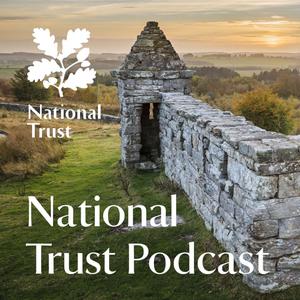 National Trust Podcast
National Trust Podcast
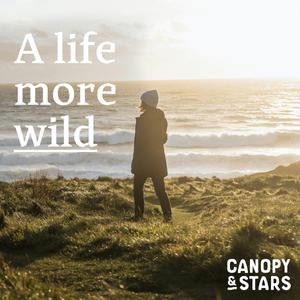 A Life More Wild
A Life More Wild
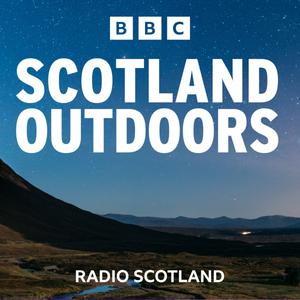 Scotland Outdoors
Scotland Outdoors
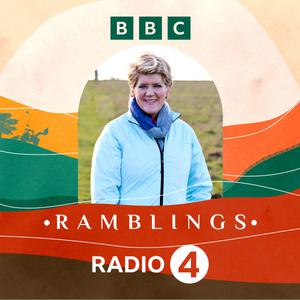 Ramblings
Ramblings
 Gardeners' Question Time
Gardeners' Question Time
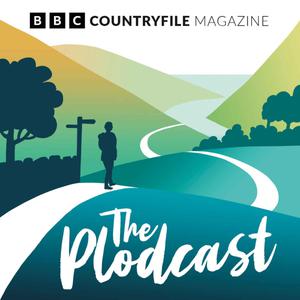 The Plodcast
The Plodcast